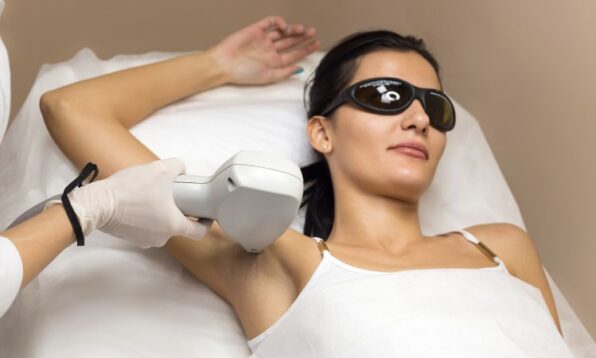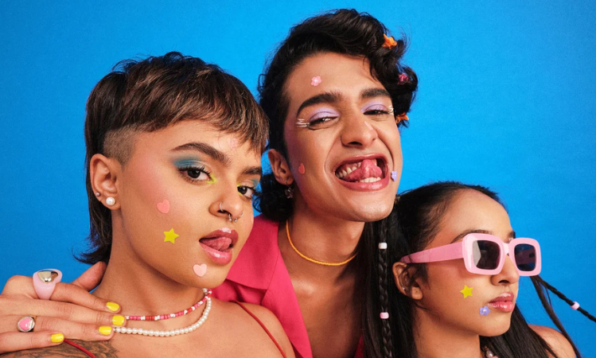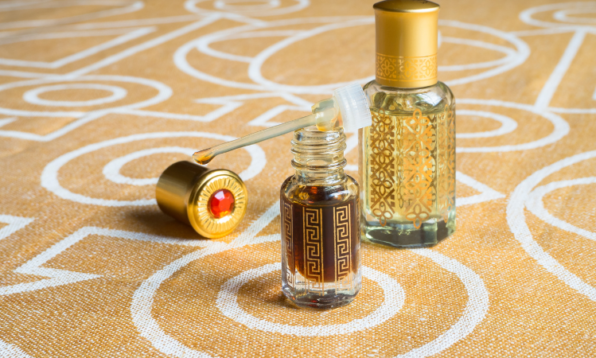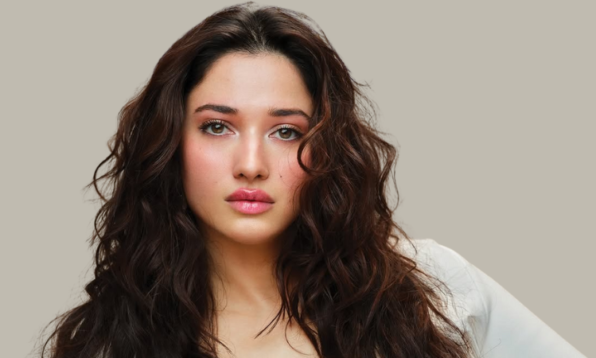When you stroll through the haircare aisle or scroll through beauty trends online, you’ve likely seen the phrase “paraben-free” plastered across shampoos, often with the subtle suggestion that this makes the product cleaner, safer, or somehow more virtuous. But what exactly are parabens, and are parabens bad for hair?
We spoke with dermatologist Dr Thalha to unpack the science, the stigma, and the real story behind parabens in our shampoos.
Related: Washing Hair Without Shampoo: All You Need To Know About Co-Washing And Its Benefits
What are parabens?
Skincare, haircare, and pharmaceutical industries have used parabens as chemical preservatives for over a century. “They play a crucial role in preventing the growth of bacteria and fungi, especially in water-based formulations, thereby enhancing the product’s safety and extending its shelf life,” explains Dr Thalha.
The most common types are methylparaben, propylparaben, butylparaben, and ethylparaben. They’re effective even in very low concentrations and are much less likely to cause allergic reactions compared to many of the newer alternatives.
What does “paraben-free” actually mean?

“Paraben-free” doesn’t mean preservative-free. “Many people perceive ‘paraben-free’ products as being more natural, safer, or cleaner, but this perception isn’t always scientifically accurate,” Dr Thalha notes. It just means that the manufacturer has opted for other ways to keep the product shelf-stable. Some alternatives used in these products include phenoxyethanol, sodium benzoate, potassium sorbate, and even essential oils. But ironically, some of these can be more irritating or allergenic than parabens, especially when used in higher quantities to make up for their weaker preservation power.
Do parabens cause cancer?
This is the big question that keeps resurfacing, and the short answer is: no, there’s no solid scientific evidence to prove that parabens in cosmetics cause cancer.
“The concern began when trace amounts of parabens were found in breast tissue,” Dr Thalha explains. “But this simply indicated presence, not causation. Plus, parabens are used in very small concentrations in skincare and haircare products, well below the levels that have shown any adverse effects in animal studies.”
In fact, some of the foods we eat contain parabens, and certain fruits like blueberries naturally produce them. While global regulatory bodies generally consider parabens safe within defined limits, the European Union (EU) has adopted a more cautious stance,” explains Dr Thalha. The EU has banned certain parabens (like isopropylparaben and isobutylparaben) due to limited data, not confirmed harm.
What about hormonal disruption?
Another concern people often raise is that parabens can mess with your hormones. Technically, they’re classified as endocrine-disrupting chemicals (EDCs) in lab settings because they can weakly mimic estrogen.
“Parabens are thousands of times less potent than natural estrogen,” says Dr Thalha. “And the doses used in cosmetics are far below what’s shown to have any effect. Plus, when used on skin, they’re barely absorbed and are quickly broken down and excreted.” So, do parabens disrupt hormones? No, they don’t.
Are parabens bad for hair?

In most cases, no. Unless you’ve got a known allergy or incredibly reactive skin, there’s no need to ditch products that contain parabens. But some people choose to err on the side of caution, particularly when shopping for products for babies or toddlers.
“I usually recommend choosing paraben-free formulations as a precaution when using products for children under three years of age, especially for items like diaper creams,” notes Dr Thalha.
So, are parabens the villain they’re made out to be? Not quite. Fear and savvy marketing have largely driven the backlash against parabens, rather than science. It’s perfectly fine to use products with parabens, as long as they work for you.
“Always assess products based on the overall ingredient profile rather than focusing solely on whether they are ‘paraben-free’. A shampoo without parabens may still include other irritants that could be more problematic for your scalp,” advises Dr Thalha. So, once and for all, parabens don’t cause cancer or disrupt your hormones. They are safe to use as long as they suit your scalp and hair. It’s easy to believe the impressive but fear-mongering marketing we see around skincare and haircare products and that’s exactly why it’s important to talk to experts.
If you want to connect with dermatologist Dr Mohammed Thalha for more personalised skin and hair care advice, you can find them here.
Featured Image Source
Related: What’s In Your Shampoo: Are Sulphate-Free Shampoos A Marketing Tactic? Or Are They Actually Better?

 Web Stories
Web Stories













